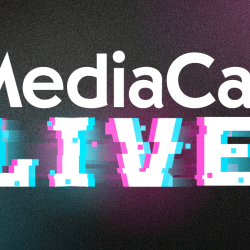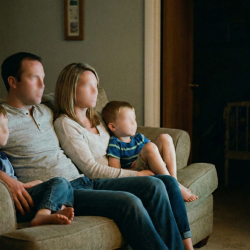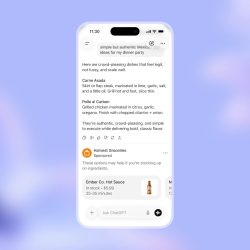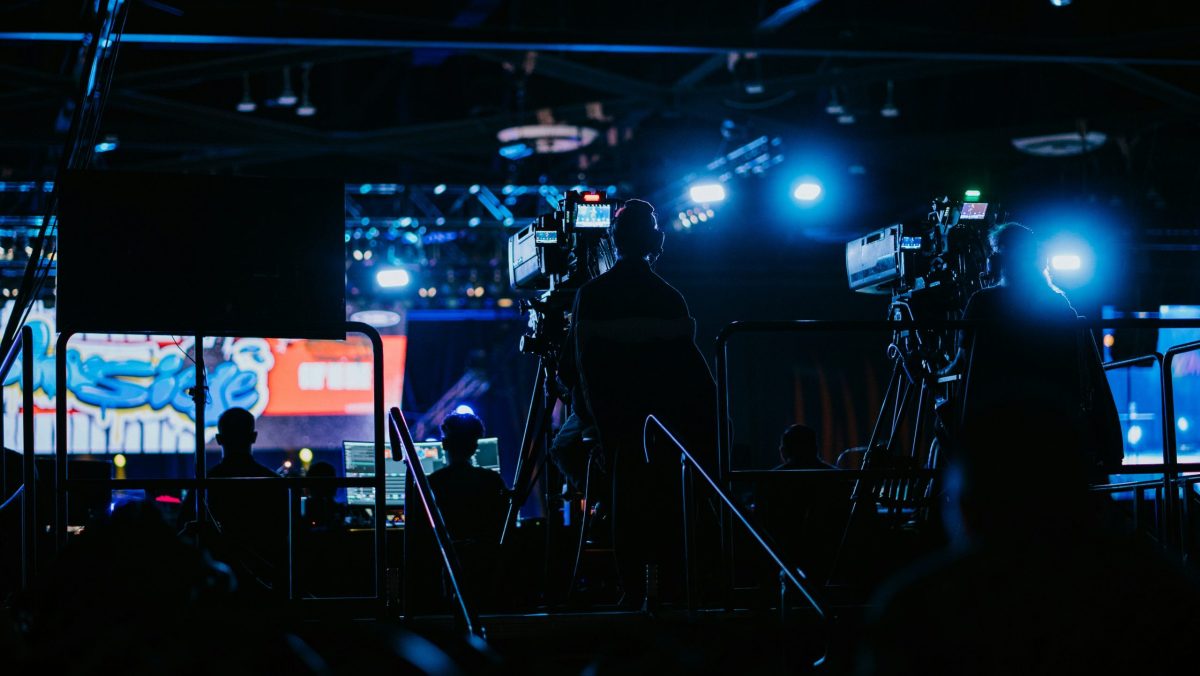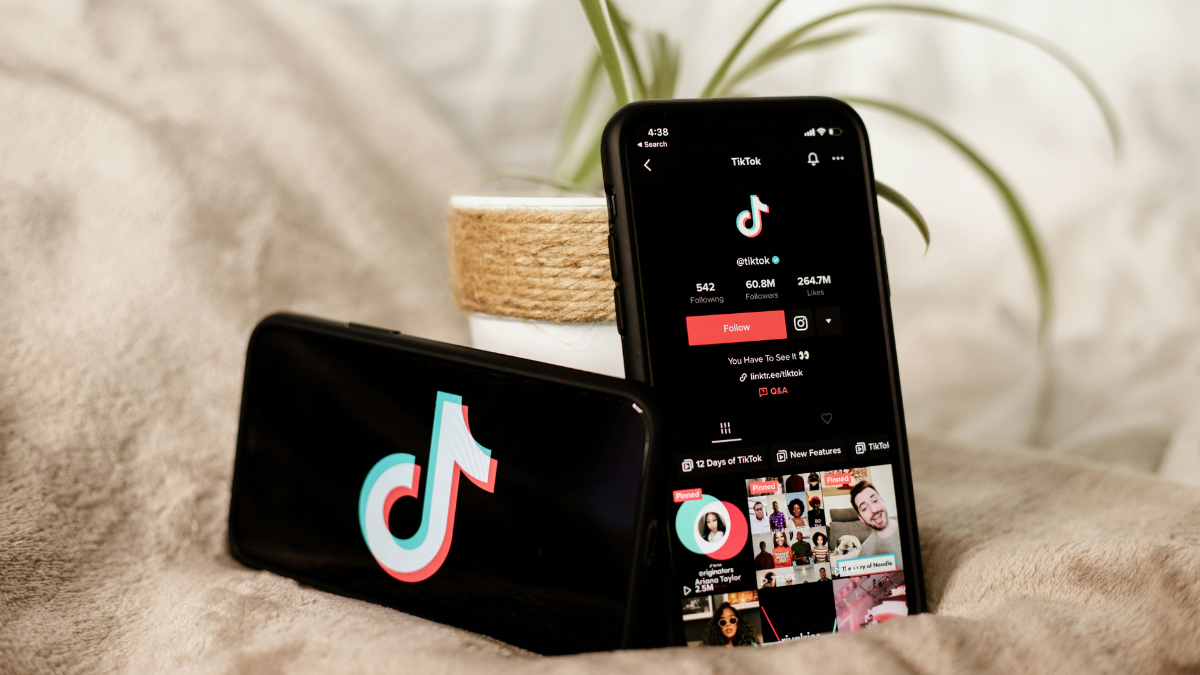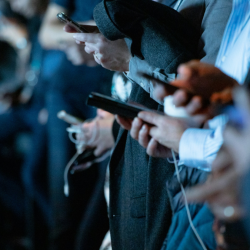Matt Klein is a cultural theorist and strategist who writes a newsletter, Zine, about how cultural and social trends are shaping the media environment.
Last year, Klein produced a limited-run printed version of Zine that explored the phenomenon of audience capture, which makes creators a prisoner of their fans’ expectations.
MediaCat sat down with Klein to talk about how creators and media companies can strike a balance between taking on board feedback and surrendering their identity.
This interview has been edited for length and clarity.
In Audience Capture you say that news media outlets, such as MSNBC and Fox News, have fallen into the trap of audience capture and transformed their content into what they think their audience wants to hear, and this contributes to the growing mistrust of media. Can you talk a little bit more about this dynamic?

For the longest time we have put the creator in a position of power. If we think about the ways in which we talk about creative work, we say, ‘did the song make you feel a certain way? Did the film change your thinking? Did the speech make you act?’ The work or the maker of the work is in a power position. What’s happened over the last couple of decades, especially the last decade with social, is that now audiences hold the power. There’s been this reversal of the power dynamic. Now the audience, whether that be individuals, algorithms, metrics, platforms, content formats or the templates, reign over what creators make. As a result, creators are losing their creative integrity and with that, sanity.
We are no longer making what we want to make. We are making what audiences are demanding of us. Audiences are now puppeteering creators. It happens on an everyday level. It’s happening at our highest Hollywood institutions as well, where we look at Fast and the Furious 30 and Minions 18. We are letting metrics and finances drive creative acts. That’s also happening in news, where audiences are setting the demand for what they want to see, and these institutions are saying, ‘if they’re demanding x, y and z, let’s just give them x, y and z.’
What do you think the difference is between a publication shifting its editorial strategy because of declining sales or a TV channel cancelling a programme because it’s not being watched, and falling into the audience capture trap?
It’s a great question. I think it depends on the purpose of that entity. If you are in the business of entertainment, your role is to produce and fund work that people find enticing, interesting or creative. The caveat there is that — and this is why I think audience capture is so dangerous — we’re not even allowing for the opportunity to test other things to see whether people find them creative. When 10 top-grossing films of the year are sequels, reboots, or parts of franchises, we’re not allowing the funding opportunity to see what could be the next Minions or the next Fast and the Furious.
Secondly, what makes this different for news is that that wasn’t the purpose of news. The purpose of news was to truly understand what was happening in the world, whether we agreed with it or not, so we could be more informed citizens. We’re not doing that with news. We have layered on agendas, biases and personalities rather than objective truth.
The concept of audience capture feels like it’s coming from the ground up, but when we talk to agencies they complain about how CMOs are obsessed with metrics. Do you think that there’s pressure from above, too?
The problem with audience capture isn’t a matter of listening to an audience or not but, rather, being mindful of when an audience is [pushing] you to make a decision that you truly don’t believe in. If you go back to your CMO example; we are plagued by a lack of confidence. We’re outsourcing our decision-making to a dashboard because the dashboard doesn’t lie. If a CMO was to ignore the dashboard to make their own creative decision, and the creative decision fails, that’s on the CMO. Their neck is on the line. The problem here is that not only are we driven by metrics, but really driven by fear of risk. That’s why the studio isn’t making something that isn’t Fast and the Furious 7 — it’s not worth the risk. We have to empathise with that because, if you were sitting in that executive boardroom and they said, ‘make the decision. Is it going to be Fast and the Furious 45 or are you going to take a gamble on this thing we don’t know will work?’ And if you say, ‘let’s take the gamble on that thing,’ and that doesn’t work out, you’re out of work.
I don’t think this is a matter of listening to an audience or a dashboard. It’s not binary. Can we increase our mindfulness of the way in which we get to pick and choose the creative acts we want to engage in? Can we show up with some nuance and an appetite for minor risk? You don’t have to gamble your entire business away but you can allow the opportunity for experimentation.
Do you think there is a positive relationship between audience capture and success in the online sphere?
Yes. There’s a relationship in that the more you give exactly what the audience wants, the more views, clicks or subscribers you get. I think that is an invitation for us to redefine success because, sure, you may have more followers, but you have completely lost any sense of autonomy and creative freedom. Is that success? I’d argue no.
A lot of people use audience capture to build fame and financial security, so that they can then pursue their creative interests.
I appreciate that theory; I don’t know if it’s true. I hope it’s true. I can’t point to anyone personally. In fact, I think it’s almost the opposite, where the more entrenched you are, the more in debt you are to the audience, the more you’re puppeteered and the less free you can be.
Addison Rae is an example. She built a massive following on TikTok and now she’s doing music where people are like, ‘why is this girl doing music? We hate it.’ But it’s what she wants.
Here’s what’s fascinating about that. Should we look at Addison Rae as a realistic marker of success? Addison Rae is in the top 000.1% of fame. Try to replicate that and see what happens. Just because these individuals use the same platforms or tools that we do, doesn’t mean that if we follow them we’ll be able to replicate their results. I think that’s a mirage — and an unfair one — because I will also argue that I don’t think a lot of people want to be Addison Rae or Mr Beast or Taylor Swift. I think we want to want that. If people slowed down and were mindful of their wants, I don’t think it’d be a thousand subscribers. I think it’d be the freedom to make work that they find fulfilling and stimulating. Unfortunately, we’re not getting enough of those messages. We’re getting too many, ‘here’s how to trick the algorithm into getting more followers’. These metrics are fucking meaningless. They don’t matter. They don’t make you happy.
But they do matter because they’re the basis of the creator economy.
They only matter because we think that they matter.
There’s also a lot of money flowing in based on those very metrics. Doesn’t that make them real?
When being a YouTuber is the most desired job for younger demographics, yet only a fraction of people make a legitimate amount of money to feed themselves and pay rent, let alone afford a house and a family, then, no — that’s not real. That’s a dream. That’s no different than growing up and wanting to be the Beatles or the Rolling Stones or Madonna.
I appreciate the interrogation there, but I share this from a very biased perspective. I used to write for Forbes and I found that the only way people came across my work was if I was writing for SEO, writing for things that people were already searching about. So here I am, writing stories that I don’t care about just to attract more eyeballs. I was captured by an audience. I wasn’t happy. Yeah, I have pieces read by hundreds of thousands of people [but] I’m not being creative or fulfilled.
I think we should interrogate what success, fulfilment and creative happiness look and feel like.
I think there’s a difference between using social media or whatever your means of creativity for satisfying your soul versus doing it as a business. That’s why I brought up the creator economy because, if you are doing it as a business, then you have to play into the metrics. Maybe it’s a design issue.
That’s an important thread of this conversation. Too many people are making things to try to monetise. We’re not doing things just for the sake of doing things. We’re doing things to optimise, monetise, influence and get sponsor deals. We’re bombarded by messages of, ‘if you reach a certain number of views or followers, then someone will pay you for your influence.’ That’s great. How lucky someone is to reach that status. We should all reach to monetise for as long as it doesn’t eclipse our integrity, or for as long as we don’t lose ourselves in it. I think a lot of us are losing ourselves in it.
How do we find the right balance between making good use of audience feedback and falling into the audience capture trap?
View audiences as invitations and not instructions. How incredible and blessed we are to have access to so many people around the world? Those are invitations to connect, learn, share, relate, empathise, iterate, remix or partner. The second we start viewing that as the instruction manual for what we should do? Game over. You lost.
We can’t exist without audiences. You can’t make art without a reaction. I just think we need a bit of mindfulness, scepticism and distance to make sure that we uphold what we care most about in our ethics and values. If we don’t have that first and foremost, then we never even realise if we’ve been captured because we have no benchmark. I look out into the creator landscape and it’s glaring to me that too many people are unsatisfied, burnt out and envious. We’re not mindful. We’re not mindful that we have a choice in this game. I just simply want to open my eyes.
Featured image: Gabriel Avalos / Unsplash




